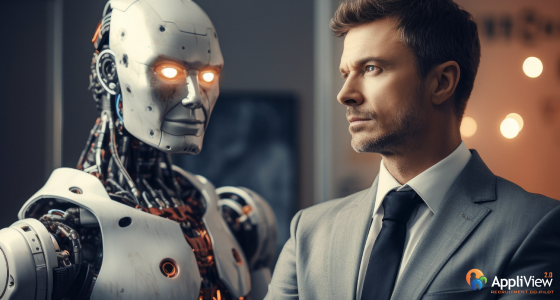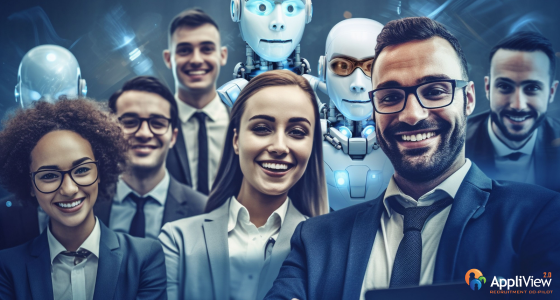AI is revolutionizing HR by automating and customizing processes like employee benefits and well-being programs. This allows businesses to cater to individual employee needs and preferences. AI-driven innovations in recruitment and employee engagement improve employee experience and retention. The future of AI in HR technology is promising, with advancements in machine learning algorithms predicting trends and delivering personalized solutions. Businesses of all sizes should explore AI-driven HR strategies to navigate an ever-changing environment and enhance employee benefits and wellness programs.
How AI is Personalizing Employee Benefits & Well-being Programs
In today’s swiftly changing business environment, companies increasingly rely on technology to improve human resources processes. Artificial Intelligence (AI) is a technology that is creating significant waves in human resources. This transformational voyage has been nothing short of extraordinary, with AI revolutionizing core HR functions. This blog will investigate how AI is making employee benefits and well-being programs more efficient, effective, and employee-centric through personalization.
AI Introduction in HR Technology

AI’s importance in HR technology cannot be overstated. It enables the automation and customization of various HR processes, such as employee benefits and well-being programs. By utilizing AI, businesses can tailor their offerings to the specific requirements and preferences of each employee.
The AI’s remarkable transformation in HR technology is quite remarkable. It has transitioned from a buzzword to a practical solution that is reshaping all HR practices.
The Transformative Journey So Far
The journey of AI in HR tech has been nothing short of remarkable. It’s essential to understand where we’ve come from to appreciate the current landscape and future possibilities.
Not too long ago, HR processes were often labor-intensive and standardized. Employee benefits and well-being programs followed a one-size-fits-all approach, with little room for personalization. HR professionals struggled with manual tasks such as sifting through stacks of resumes, scheduling interviews, and managing benefits administration.
Key areas where AI is revolutionizing Human Resources

AI has penetrated several HR domains, each of which promises substantial benefits for businesses of all sizes. Recruitment, one of the most important HR functions, has benefited from AI-driven innovations such as automated resume sifting and chatbots for candidate interactions. Employee engagement is another vital area that can benefit from surveys and feedback mechanisms powered by artificial intelligence that provide real-time insights into employee satisfaction.
AI allows for more effective customization of employee benefits and well-being programs, in particular. For example, algorithms powered by AI can analyze employee data to recommend personalized well-being activities or specific benefits options based on a person’s lifestyle and preferences. This customization not only enhances the employee experience, but also contributes to greater employee retention and overall job satisfaction.
Forecasts of the Future
The future of AI in HR technology is ripe with opportunities. As technology continues to advance, AI’s capacity to comprehend, predict, and meet employee requirements will increase. With algorithms for machine learning, AI will become even more adept at predicting trends and delivering customized solutions.
However, AI in HR technology is not devoid of obstacles. Concerns about data privacy and ethics persist, but evolving regulations and best practices address these obstacles.
The conclusion
In conclusion, the incorporation of AI into HR technology is not merely a passing fad; it is a permanent transformative force. Personalization and delivery of employee benefits and well-being programs are being altered, resulting in a more efficient and employee-centric approach.
